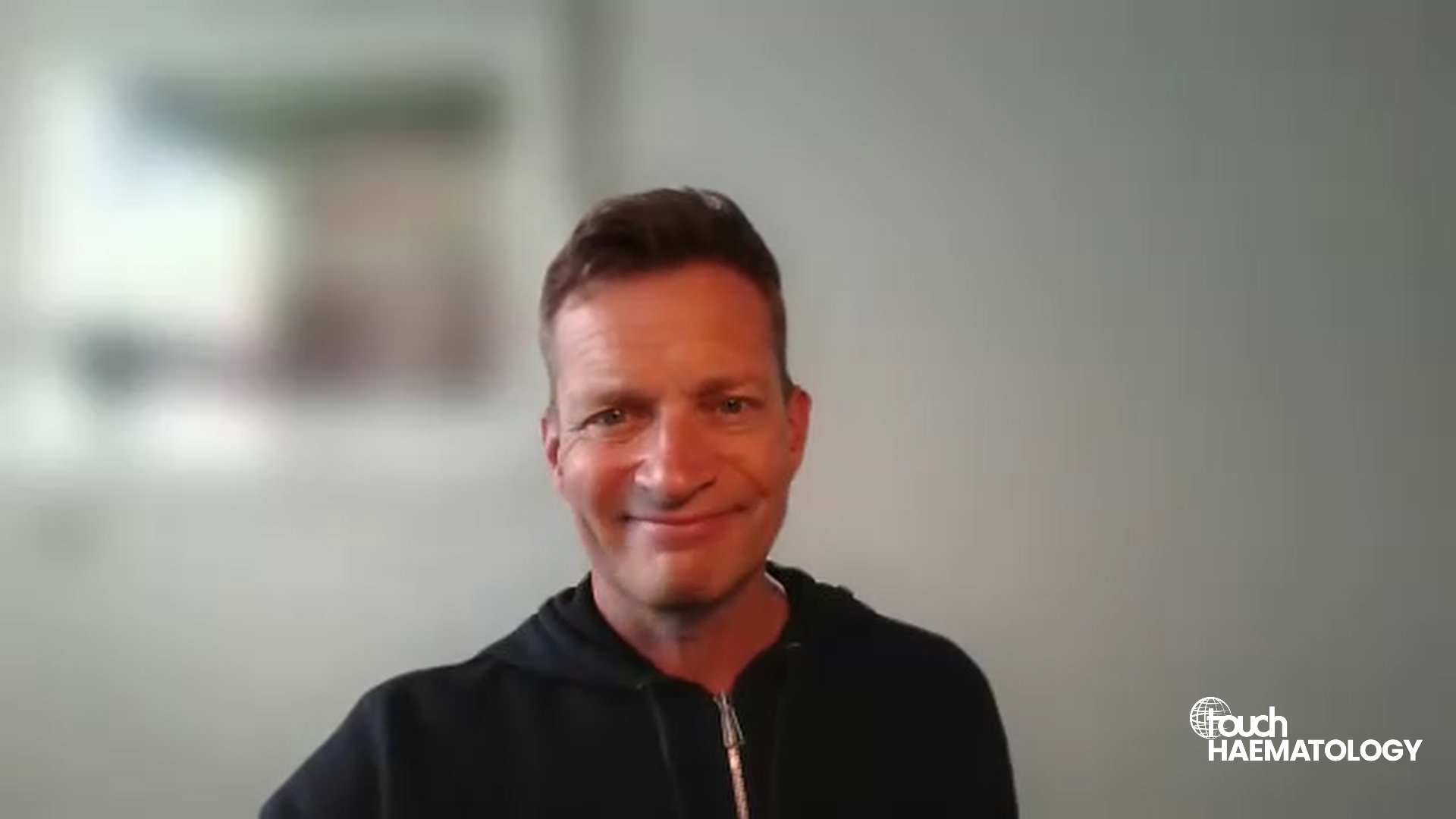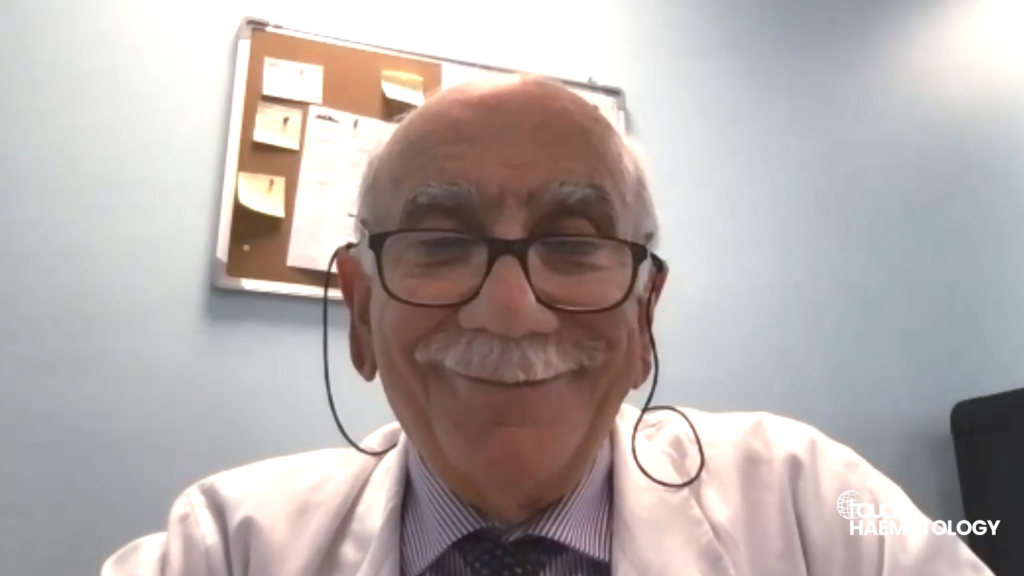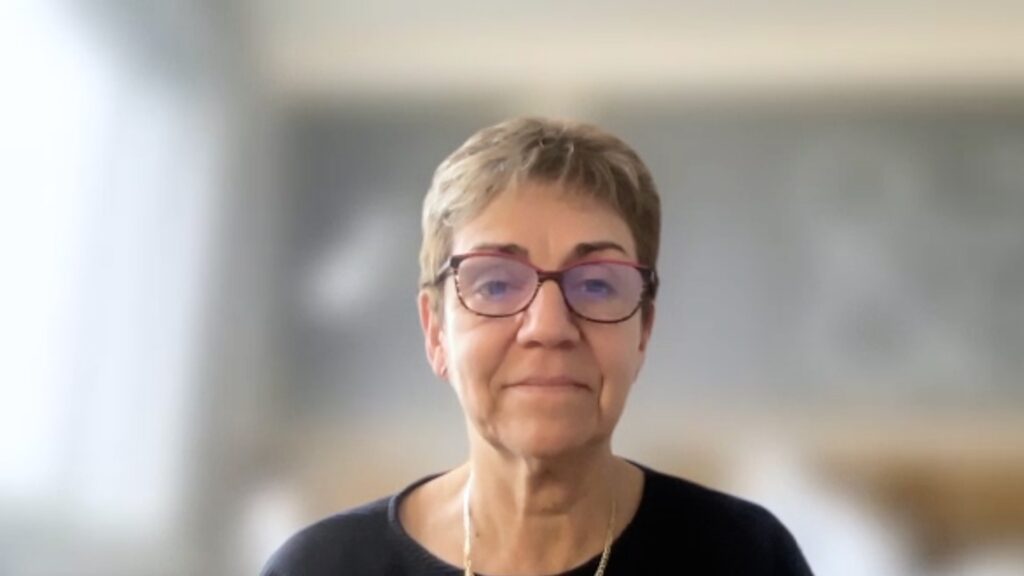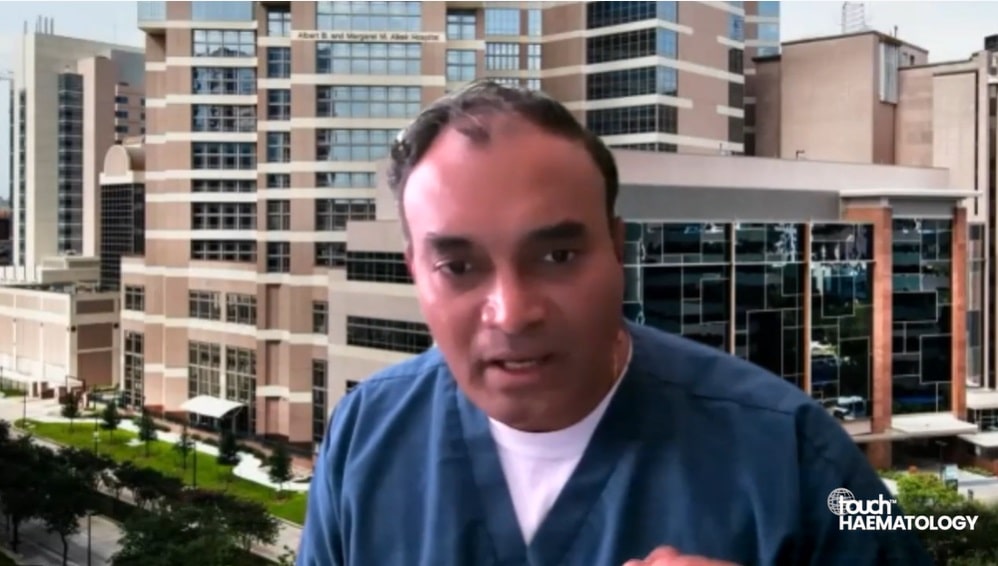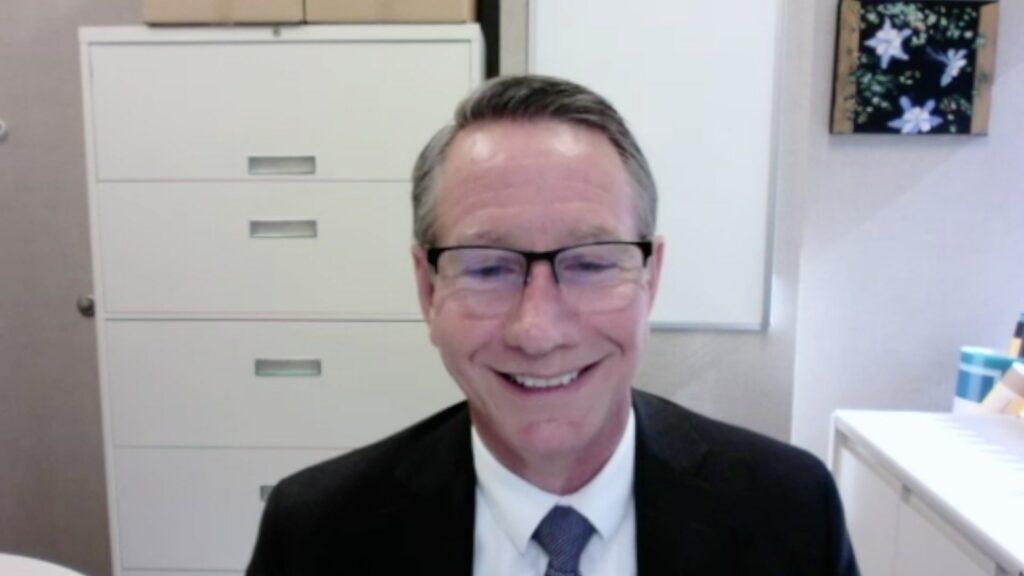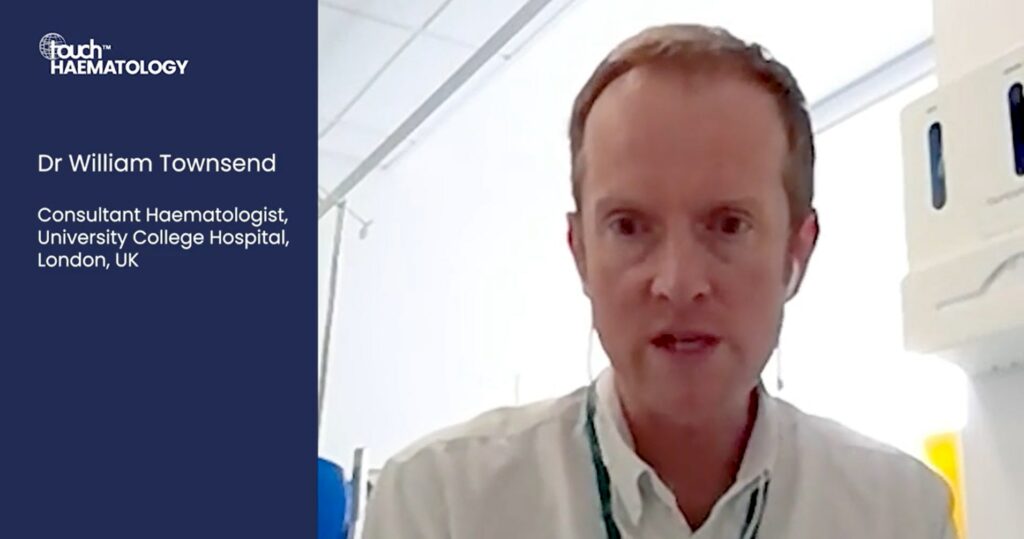The role of transplant and biologics in mantle cell lymphoma
In the first of two updates from ASH 2022, Swaminathan Iyer (University of Texas MD Anderson Cancer Center) provides an overview of the plenary session presented by Dr Martin Dreyling at ASH 2022, discussing the role of transplant and biologics in mantle cell lymphoma. In results from the phase III TRIANGLE study, Dr Dreyling concluded that ibrutinib added to first-line treatment may be more effective than standard treatment alone for patients under 65 years with mantle cell lymphoma with or without autologous stem cell transplantation.
The abstract entitled Efficacy and Safety of Ibrutinib Combined with Standard First-Line Treatment or As Substitute for Autologous Stem Cell Transplantation in Younger Patients with Mantle Cell Lymphoma: Results from the Randomized Triangle Trial By the European MCL Network was presented at the ASH Annual Meeting, 10–13, December, 2022.
Disclosures: Prof. Iyer has provided consultancy to Salarius Pharmaceuticals, Inc.
Support: Interview and filming supported by Touch Medical Media Ltd. Interview conducted by Nicola Cartridge.
Transcript:
Hello, everyone. I’m Swaminathan Iyer from M.D. Anderson Cancer Center. One of the first abstracts that I want to discuss in lymphoma is aptly termed- it has a number one – which is at the plenary session presentation of the role of transplant and biologics in mantle cell lymphoma in newly diagnosed mantle from patients who are younger than 65 years of age. And this is a confirmation of the work that’s done by Dr. Michael Wong at M.D. Anderson. And to show that perhaps autologous transplant may or may not be necessary for the right patient with a lower Ki-67. So just to give you a background, transplant has been the mainstay for consolidation after patients achieve optimal responsive, complete response with the induction regimen consisting of chemotherapy, which normally is R-CHOP, sometimes the addition of R-CHOP with R-DHAP and other operations have also been utilized. And the advantage transplant had was the DFS, but that was done in the era of interferons. So this study that Dr. Martin Dreyling presented aptly termed the TRIANGLE study, randomized 870 transplant eligible mantle cell lymphoma patients across 14 countries in Europe, mainly, to the induction therapy. So the three arms the induction therapy was similar consist of chemotherapy with R-CHOP and R-DHAP that is controlled and these patients were not to receive transplant. The other two experimental arms where the chemotherapy induction as I mentioned with ibrutinib followed by transplant and a ibrutinib maintenance and the third arm was the chemotherapy with the ibrutinib, no transplant but with ibrutinib maintenance, and the primary endpoint is failure free survival. But if you look at these patients, the median age is 57, majority of them at stage four disease, and more than half of them are considered low risk, according to IPI. And the failure, free survival at three years was numerically higher in patients receiving ibrutinib, either alone that 86% or with autologous transplant at88% compared to a transplant alone at 72%. More importantly, the overall survival was numerically higher in the ibrutinib arms compared to the transplant arms, it is in the range of 91 to 92%, was 86% respectively, though it is too early for a statistical comparisons, which is what is caution at the time of the presentation. So it’s an interesting presentation to ask, even though the primary hypothesis was that transplant arms would do preferentially better, the null hypothesis was disproven in this case, ibrutinib patients did much better. Question is whether ibrutinib and the transplant adds anything to ibrutinib. When we look at the side effect profile, the induction regimens are compatible. But when the patients got transplant with the ibrutinib vs ibrutinib alone the side effects were much higher in those patients. So that begs the question whether it’s doing the transplant in some of these young patients with low Ki-67, especially when the biologics can do a similar, you know, provide similar efficacy, of course, you need long term data to confirm this, but it’s very important in potentially practice changing that abstract in mantle cell lymphoma.
Interested in more content on lymphoma? Take a look at our recent videos below:
Dr Stephen Ansell discusses the treatment challenges in Hodgkin’s lymphoma

